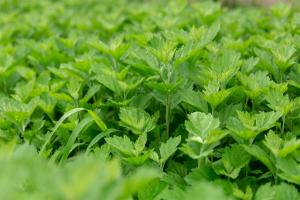Introduction
Black walnut trees are known to have a significant impact on the plants growing around them due to the release of a chemical called juglone. Juglone is produced by the roots, leaves, and fruit of the tree, and it can be toxic to some plants. In this article, we will explore how black walnut trees affect plants around them.
Juglone
Juglone is a chemical compound that is released by black walnut trees. It is toxic to many plants and can cause stunting, wilting, and death. Juglone is released by the roots of the tree and can travel several feet away from the trunk. The chemical is also present in the leaves and fruit of the tree.
Sensitivity of plants
Not all plants are sensitive to juglone, and some can tolerate high concentrations of the chemical. Plants that are sensitive to juglone include tomatoes, potatoes, peppers, and blueberries. Plants that are tolerant of juglone include most grasses, sunflowers, and black-eyed Susans.
Plant growth
Plants that are sensitive to juglone will grow poorly around black walnut trees, and some may die. The chemical can affect the growth of a plant by reducing its ability to take up water and nutrients. The roots of the plant may also become stunted, which can lead to a decrease in overall plant growth and productivity.
Allelopathy
Juglone is an example of allelopathy, which is the ability of one plant to affect the growth and development of another plant. Other trees and plants can also have allelopathic effects, but juglone is one of the most well-known examples. Allelopathy can be a beneficial or detrimental effect, depending on the species involved and the concentration of the chemical.
Companion planting
Companion planting is the practice of growing two or more plants together to provide mutual benefit. Some plants can be grown near black walnut trees without being affected by juglone. These include onions, garlic, and chives. These plants are believed to help repel pests that may be attracted to the area around the black walnut tree.
Conclusion
Black walnut trees can have a significant impact on the plants growing around them due to the release of juglone. Plants that are sensitive to the chemical may grow poorly or die, while plants that are tolerant of juglone can thrive. Understanding the effects of juglone can help gardeners and landscapers choose plants that will grow well near black walnut trees, and companion planting can also be used to provide mutual benefits.

 how many times do yo...
how many times do yo... how many planted tre...
how many planted tre... how many pine trees ...
how many pine trees ... how many pecan trees...
how many pecan trees... how many plants comp...
how many plants comp... how many plants can ...
how many plants can ... how many plants and ...
how many plants and ... how many pepper plan...
how many pepper plan...
































